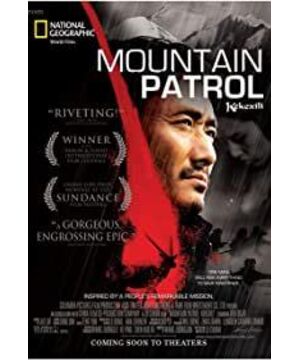Re-watching the movie Every frame and every painting in it can add a touch. Back then, when I saw Hoh Xil, I was just a child who loved wild animals and hated poachers so much. I have been traveling on the mountain roads in Tibet for some time now, and I have personally experienced the beautiful green mountains. At the same time, I have begun to feel the complexity of society. The feelings after watching the movie have become more complicated.
The selfless heroes in the film, the most affectionate little people, the firm beliefs, and the Hoh Xil that the team members are willing to sacrifice for are all the moving parts of the film, and the focus of this film review is to put it on poaching, It is hoped that the audience, while being moved by the brilliance of various human natures, will use the method of reflection to truly understand the original intention of the director to choose this theme—to bring the concept of environmental protection and sustainability to the big screen.
A noble lady in the upper class in Europe, when appreciating the small retro Tibetan antelope wool shawl in her wardrobe, will never think of the bloodthirsty and greed when poachers obtain Tibetan antelope wool in Hoh Xil, thousands of miles away. The lady may have just attended a charity event during the day to speak out for the world's hungry and needy children. So is the tragedy of the Tibetan antelope her fault? There will be no criminal chain of a series of killing transactions in the future if there is no demand for high-end fur products by ladies.So they are sinful, so this tragedy simply boils down to "imperial greed for the looting of hidden resources in developing countries." Things shouldn't be so simple.
They may be genuinely raising money for children during the day, but they are careless and vexed. The lack of environmental protection propaganda can make them make mistakes inadvertently, and people's mentality of seeking advantages and avoiding disadvantages makes them choose to buy Tibetan antelope cashmere even when they know that buying Tibetan antelope will bring a series of negative consequences for the environment. Seeing the splendor of that shawl, and choosing to forget the bloody scene of taking the sheepskin. So are they so sinful? Maybe not, it’s just driven by human weakness, and similar stories may also happen to us: When eating shark fins, don’t think about sharks with broken limbs; when they are sick and old, they will treat them and help them die; when they spend too much time, they will not think about the garbage pilings in the garbage dump five miles outside the city, surrounded by mosquitoes and flies. These gray areas outside the rule of law and under moral constraints are increasingly being replaced by people's growing material needs.
But if there is only demand but no supply, this chain of evil is missing a crucial link. The ruthless poaching boss and the ungrateful Ma Zhanshan will tickle their teeth when they see many of them. I also hated them very much. They killed thousands of Tibetan antelopes inhumanely; even the pregnant ewes were spared. They also brutally killed the Japanese and Thai captains and members of the mountain patrol team, just because they blocked their way to making a fortune. Watching it again now, I still hate them for being ruthless, but there's more sadness than that.
Is the mountain patrol blocking only the way for poachers to make money? Poachers like Ma Zhanshan, blocked by the mountain patrol, are clearly the only way to survive. He used to be a dutiful herdsman, but the deterioration of the environment made it impossible for him to continue herding. In order to survive, he started skinning sheep for poaching gangs, skinning one for five dollars. Ma Zhanshan, who had just benefited from it, asked his sons to come with him to peel a few more sheepskins, and then he could exchange a few more coins. The deterioration of the environment has deprived them of the pastures they originally depended on for survival, and talking about sustainable development when they have not enough to eat is, in the eyes of poor farmers, depriving them of their right to survive.
In the face of the basic needs of life, no matter how much values and popularization of the law, propaganda is pale and even counterproductive. But fortunately, China has basically passed the days when people can't get enough to eat, and there are fewer and fewer people like Ma Zhanshan, so it is time for sustainable promotion. The story told in the film happened 20 years ago, and it has been eight years since the film was released. Over the years, there have been regular mountain patrols in Hoh Xil, and the state has also legislated to establish nature reserves and banned Tibetan antelopes and other countries' trade in protected wildlife. I hope these actions can comfort the spirits of the heroes sleeping in Hoh Xil.
This is not just the story of the Mountain Patrol and Hoh Xil; it is also the story of you and me. Humans were originally a part of nature, and any act that focuses on immediate interests and separates humans from nature will be repaid in another way, hundreds of thousands of times.
View more about Mountain Patrol reviews










